Nursing Cat Always Hungry: What Could This Mean?
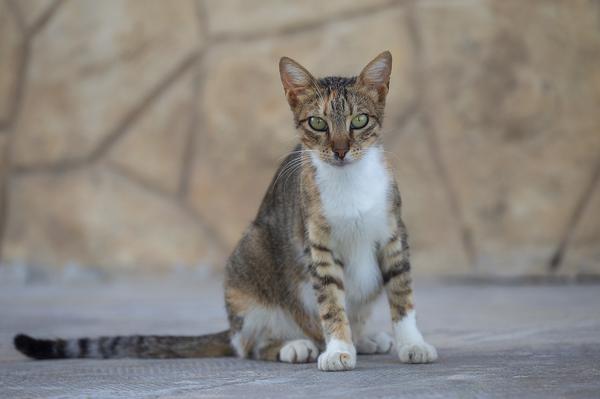
Let me know if you agree:
Having a nursing cat can be tough. 😺
You're worried about those tiny, vulnerable kittens, and you want to give them the best care possible.
But here's the thing:
Your nursing cat seems to be always hungry.
Constantly begging for food, leaving you wondering if you're doing something wrong.
It's like being stuck in a never-ending cycle of worry and doubt.
But fear not, my friend.
Let's dig into the possible reasons together and find some answers.
Ready to unravel the mystery?
Let's begin.
Signs of Hunger in a Nursing Cat
To recognize signs of hunger in your nursing cat, keep an eye out for these indicators:
- Excessive meowing or whining.
- Constantly seeking attention and food.
- Acting hungry outside of regular meal times.
- Whining between meals.
Remember, nursing cats usually have predictable behavior when it comes to feeding their kittens.
However, if you notice any of the above signs, it could be a sign of increased hunger.
You should provide your nursing cat with enough nutrition to support her and her babies. Offering frequent small meals throughout the day can help satisfy her hunger and ensure she has ample milk supply for her kittens.
What's more, make sure to provide fresh water at all times for both the nursing cat and her kittens.
If you're concerned about your nursing cat's appetite or behavior, consult with your veterinarian for further guidance and advice.
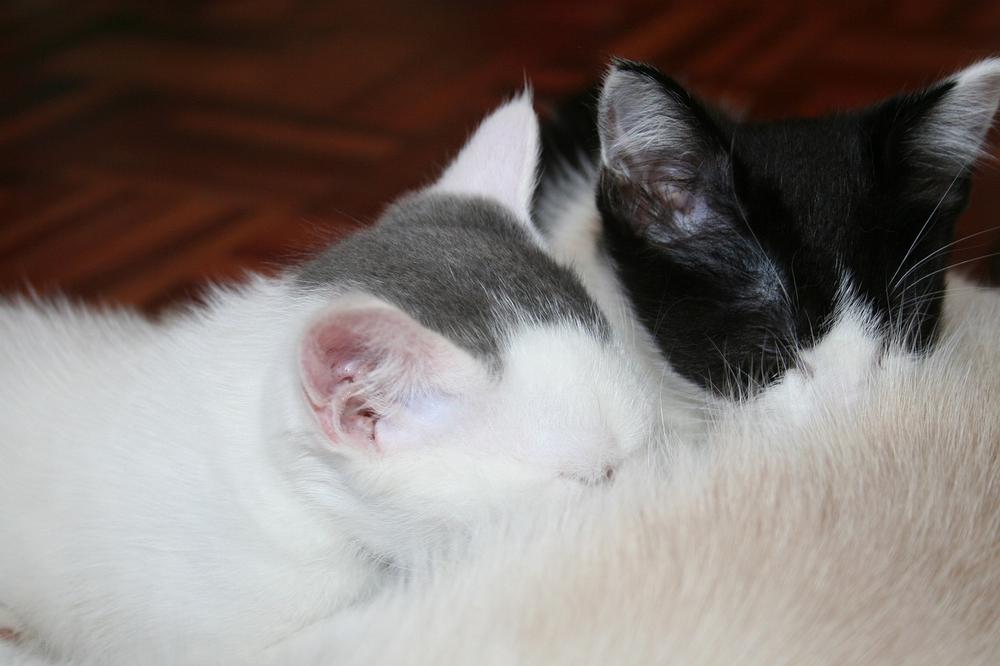
Taking care of a nursing cat requires attention and understanding.
Make sure you meet her nutritional needs to keep everyone happy and healthy. 😺
To ensure your nursing cat receives the necessary nutrition during this crucial time, it's paramount to understand her appetite.
If you suspect she is consuming more than usual and want to discover reasons and solutions, my article, Pregnant Cat Eating a Lot, offers valuable insights.
With topics ranging from potential causes to expert guidance, this resource will help address any concerns.
Stay attentive to her needs, and I invite you to explore my guide for further understanding.
Factors That Influence a Nursing Cat's Appetite
When it comes to a nursing cat's appetite, several factors come into play:
- Litter size: The number of kittens being nursed directly impacts the cat's energy and milk production requirements. Larger litters require more milk production and energy, leading to an increased appetite in the nursing cat.
- Water consumption: Maintaining proper hydration is vital for milk volume. Nursing cats need to drink enough water in order to produce an adequate amount of milk for their kittens.
- Kitten development: Although kittens are born blind, naked, and weigh only a fraction of their mother's weight, their eyes open within 12 hours. As they grow and develop, their nutritional needs increase, which in turn affects the mother cat's food intake.
- Hunger during lactation: It is common for nursing cats to exhibit constant hunger due to the increased demand for energy while nursing. Their bodies work hard to produce milk, which requires extra calories.
Understanding these factors can help cat owners better address their nursing cat's appetite.
By providing appropriate nutrition and ensuring access to fresh water, you can support your cat's health and well-being during this critical stage.
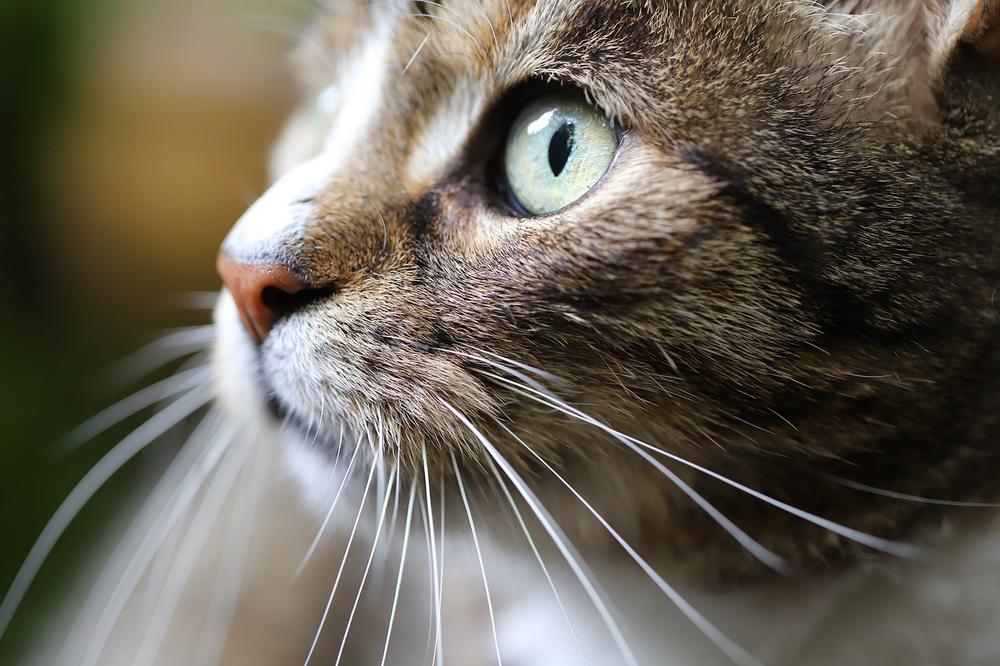
And if you're ever wondering why your nursing cat appears hungry but refuses to eat, I've got you covered.
In my blog post Cat Seems Hungry but Won't Eat, I provide valuable information and advice on this exact topic.
Trust me, it's a must-read for cat owners like you, who are curious and attentive to their pet's needs.
Health Issues That Can Cause Increased Appetite in Nursing Cats
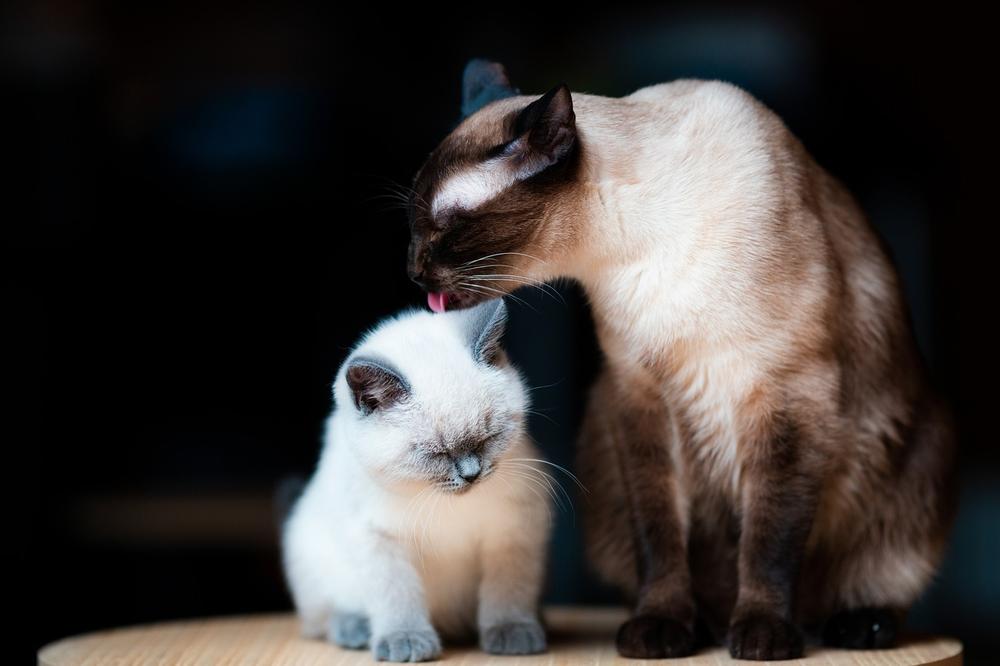
When it comes to nursing cats with increased appetite, there are several health issues that could be at play:
- Hyperthyroidism: An overactive thyroid gland can cause an increase in appetite and weight loss in nursing cats.
- Gastrointestinal obstruction: Hairballs or foreign objects in the digestive tract can lead to vomiting and may require medical attention.
But wait, there's more:
- Underlying medical conditions: Constant hunger and failure to gain weight could be a sign of an underlying medical issue, so it's important to have your cat examined by a veterinarian.
- Polyphagia: This is a significant increase in appetite, which can have physical or psychological causes in cats. Proper diagnosis and treatment are crucial.
- Feline anorexia: Nursing cats that are always hungry and seeking out food, even in the presence of their mother, may be dealing with sensitive stomachs, anxiety, or stress.
- Other signs to look out for: Increased thirst, frequent urination, abnormal weight gain or loss, vomiting, and diarrhea can all indicate underlying diseases or ailments.
So if your nursing cat experiences vomiting, lack of weight gain, or any sudden changes in appetite, don't hesitate to visit your vet for a thorough check-up.
How to Ensure Proper Nutrition for a Nursing Cat
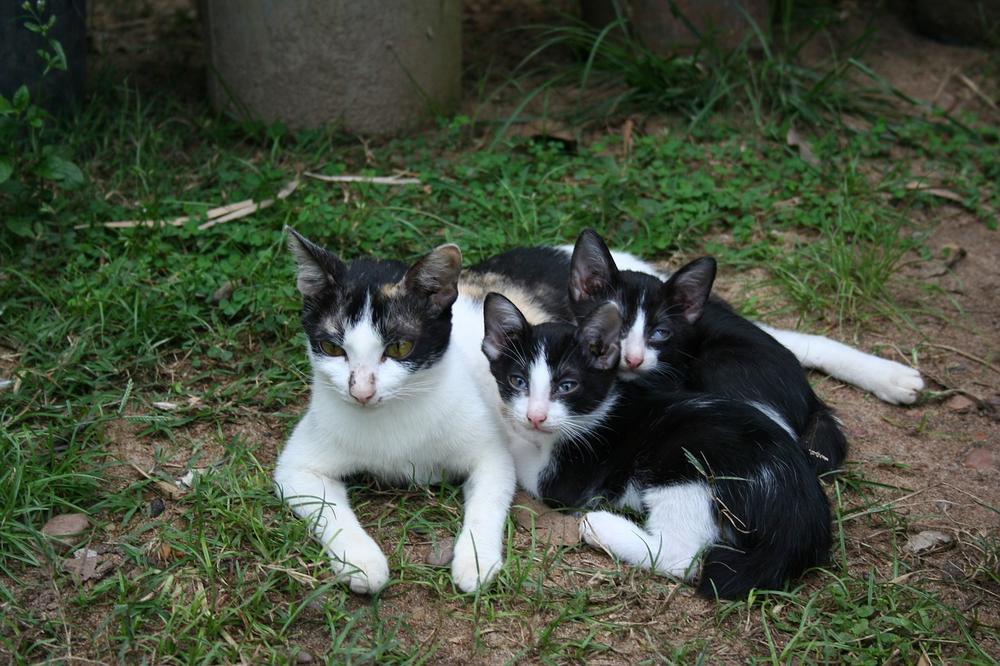
If you want to ensure your nursing cat gets the right nutrition, here are 16 tips for you:
- Make sure they get all the nutrients they need during pregnancy and when lactating.
- Give them high-calorie supplements like kitten formulas.
- Use diets specially made to provide the energy they require.
- Give them nutrient-dense food, like kitten chow.
- Choose easily digestible foods to avoid regurgitation.
- Promote brain and eye development with tuna or salmon oil.
- Consider specialized diets if your cat is nursing multiple litters.
- Keep a balanced and nutritious diet for proper milk production.
- Always have fresh water available to prevent dehydration.
- Regularly check your cat's weight during lactation.
- Increase meal frequency to keep track of their hunger without overfeeding.
- Offer them high-quality and balanced food based on their preferences.
- Split meals into smaller portions throughout the day to satisfy their hunger.
- Pick cat food that suits their activity level and calorie content.
- Customize their diet according to their breed, lifestyle, and overall health.
- If you're constantly worried about your cat being hungry, consult a veterinarian.
Your nursing cat will receive the necessary nutrition by adhering to these guidelines.
Common Mistakes to Avoid When Feeding a Nursing Cat
When feeding a nursing cat, you need to pay special attention to its health and well-being.
Let me give you some advice on what not to do:
- Don't overfeed your cat because that can make it obese and cause health problems. Just give it the right amount of food it needs.
- If your nursing cat is constantly crying for food and gaining weight, that could mean it's getting too much food, which can lead to diabetes and joint issues.
- Instead of giving milk in the morning, try offering balanced cat food (either wet or dry). It'll help prevent weight gain and teach good eating habits.
- To avoid vomiting in cats with sensitive stomachs, feed them smaller portions throughout the day instead of one big meal.
- Be mindful of snacks and treats. Limiting them will prevent excessive weight gain and unhealthy behavior.
- Create a feeding routine and watch out for any changes in your cat's behavior around food.
- Once your cat becomes an adult, you can feed it twice a day and let it have access to dry food for grazing.
- Cats are usually self-groomers and don't need baths, but regular brushing can help prevent hairballs and keep their coat healthy. 🐱
By avoiding these mistakes, you'll be taking care of your nursing cat's nutrition and ensuring it maintains a healthy weight.
Understanding the Hunger Needs of a Nursing Mother Cat
Nursing cats have unique dietary needs
When it comes to nursing cats, there are a few things you need to keep in mind. These furry mamas have some specific dietary requirements that you should be aware of, in order to keep them healthy and nourished.
Feeding frequency is important for nursing cats
You see, nursing cats have high energy needs because they are not only taking care of themselves but also their adorable kittens. After giving birth, these fur babies require a surge in calorie intake to maintain milk production and provide the necessary care for their little ones.
Here's the thing:
Although overfeeding should be avoided, nursing cats often need more frequent meals to meet their increased energy demands. So don't stick to just set feeding times like with your regular cat.
The need for nutritious meals for nursing cats
Another key aspect to consider is the importance of providing highly nutritious meals to nursing cats. Sure, you always want to feed your cat a well-balanced diet, but it becomes even more crucial during this nursing period.
Here's why:
Kittens cannot hunt until they reach three months of age, which means that their main source of nutrition is their mother's milk. Therefore, nursing cats require an even higher calorie and nutrient intake to ensure the health and development of their precious kittens.
So ensure you choose cat food that is specifically formulated for nursing cats, as it will contain the essential nutrients they need for both themselves and their little bundles of joy.
Nurturing a Satisfied Nursing Cat's Appetite
- Nursing cats may always be hungry due to increased energy requirements.
- Water consumption is crucial for milk volume in nursing cats.
- Nursing cats can consume up to 40% of their body weight in food per day.
- The amount of food a nursing cat needs depends on their weight and number of litters.
- Odd cat behaviors should be understood to better communicate with them.
- Vomiting and lack of weight gain in a nursing cat may indicate an underlying medical condition.
- Polyphagia in cats requires proper diagnosis and treatment.
- A nursing cat being constantly hungry could be a sign of a serious health issue.
- Proper nutrition for a nursing cat includes a nutrient-dense diet and fresh water.
- Splitting meals into smaller, more frequent feedings prevents overeating.
- Feeding guidelines for kittens involve gradually introducing wet food and reducing feeding frequency after 6 months.
- Overfeeding can lead to complications like diabetes and joint problems in nursing cats.
- Establish a feeding routine to monitor any changes in the cat's behavior around food.
- Cats can give birth multiple times a year, requiring increased calorie intake.
- Nursing cats often need to eat more frequently due to their high energy needs.
And that wraps up today's article.
Before you leave, I'd like to ask you a question: Did my blog post prove helpful for you? If it did, I would genuinely appreciate it if you could share it with your friends and family. Sharing is easy, just click on any of the social media sharing icons and you're done. Thank you so much!
Talk soon,
-Sarah Davis